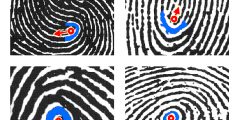Bushfires and climate change communication: Between amplification and attenuation
January 10, 2020
For about a decade I have been thinking and writing about extreme weather events and their links to human-induced climate change, and this included quite a few references to Australia, especially droughts, heatwaves and bushfires. I thought the Las Conchas Fire in New Mexico, lived through by some of my family, was bad. I thought …
Climategate: Some reflections
November 15, 2019
Ten years ago (it seems like yesterday), I was doing relatively pedestrian research on how people talked about climate change. Then, one morning I woke up to the news that emails by climate scientists had been hacked and were being used to cast doubt on the credibility of climate science and the integrity of climate …
What is a climate change communicator to do?
July 25, 2019
In a recent article, social scientists claim that a rhetoric of deadlines to urge action on climate change is ‘dangerous’. While I agree that it might be dangerous to get into a situation where you extend deadlines forever if you cannot achieve them, setting no deadlines at all may make it difficult to talk about …
Extreme weather talk: The sequel to the sequel
June 28, 2019
I have written quite a few blog posts over the years about extreme weather (and weather and climate). In 2013 I also published an article with Rusi Jaspal about extreme weather images… That seems now a long time ago and much better work is now done on the images front! I wrote my last post …
Are we all alarmists now?
July 13, 2018
Over the years I have written many posts about extreme weather events on the one hand and quite a few on so-called alarmism on the other. This was in the context of working on issues related to climate change communication. Some years ago, when writing an article on communicating climate change, I included a sentence …
Air con and the apocalypse
July 3, 2018
I have recently spent a lot of time in official spaces, GP surgeries, hospitals etc. Where in the past one would sit with a window or door open, there is now air conditioning. In Eye Casualty the other day, I heard the head nurse tell a junior: “Didn’t you read the memo? We are not …
Antimicrobial resistance and climate change: Communication, governance and responsibility
April 13, 2018
Last week I was reading some tweets from an international science communication conference held at Dunedin, New Zealand. As I have blogged and written about hype, I was particularly interested in tweets about a fascinating Roundtable convened by Tara Roberson entitled: “Can hype be a force for good? – Debating the benefits and drawbacks of science …










